Can You Use Essential Oils in Soap
Have you ever wondered about making soap without essential oils?
From natural fragrance to therapeutic and antimicrobial properties, essential oils can elevate your soap-making experience.
In this article, we will explore the different types of essential oils commonly used in soap making, how to safely incorporate them into your recipes, and the best essential oils to enhance your creations.
Whether you prefer citrus, floral, herbal, woody, or spicy scents, essential oils offer endless possibilities for customized soap blends.
Key Takeaways:
What Are Essential Oils?
Essential oils are concentrated plant extracts that capture the essence or fragrance of a specific plant. These oils are commonly used in aromatherapy, skincare, and soap making due to their natural properties and scents.
Each essential oil is extracted through various methods such as steam distillation, cold pressing, or solvent extraction, which preserves the purity of the oil. For instance, lavender oil is known for its calming aroma and its ability to promote relaxation, making it a popular choice in aromatherapy practices. In skincare, tea tree oil is often used for its antibacterial properties, helping to treat acne and other skin conditions effectively. In terms of soap making, oils like peppermint oil add a refreshing scent to the final product, creating an invigorating bathing experience.
What Are the Benefits of Using Essential Oils in Soap?
Using essential oils in soap can offer numerous benefits including natural fragrance, therapeutic properties, and antimicrobial effects. These oils enhance the overall soap experience and provide additional skincare benefits.
When essential oils are added to soap, they infuse the product with delightful scents derived from nature, unlike synthetic fragrances. These natural aromas have the power to elevate the mood and create a calming ambiance during showers or baths.
The therapeutic properties of essential oils can help soothe the mind and body, promoting relaxation and stress relief. The antimicrobial effects of certain essential oils like tea tree and lavender can also contribute to maintaining skin health by fighting off harmful bacteria.
Natural Fragrance
Natural fragrance in soap, derived from essential oils like lavender, geranium, and eucalyptus, provides a refreshing and aromatic experience while cleansing the skin.
Geranium essential oil, known for its sweet floral scent, not only adds a pleasant aroma to soaps but also offers skin-soothing properties; it can help balance oily skin and promote a healthy complexion. On the other hand, eucalyptus oil’s invigorating and minty fragrance is perfect for awakening the senses, making it a popular choice for morning showers. Additionally, lavender, with its calming and relaxing scent, helps in reducing stress and promoting better sleep, making it ideal for nighttime cleansing routines.
Therapeutic Properties
Soap enriched with essential oils such as clary sage, peppermint, and roman chamomile can provide therapeutic properties like relaxation, stress relief, and skin soothing benefits.
Clary sage essential oil, known for its calming effects, can help alleviate anxiety and promote mental clarity when infused in soap.
Peppermint oil, with its invigorating scent, is renowned for its ability to boost energy levels and aid in concentration.
Meanwhile, roman chamomile is cherished for its gentle and soothing nature, making it ideal for promoting relaxation and improving sleep quality.
Incorporating these oils into your soap-making regimen not only enhances the sensory experience but also offers a holistic approach to improving both your mental and physical well-being.
Antimicrobial Properties
Sandalwood essential oil, commonly used in soap making, possesses antimicrobial properties that can help cleanse and protect the skin from harmful microorganisms.
When incorporated into soap formulations, sandalwood essential oil acts as a natural defense mechanism against various pathogens that may cause skin infections. Its antimicrobial properties enable it to combat bacteria, fungi, and viruses, making it an ideal ingredient for promoting skin health. The soothing aroma of sandalwood adds a calming effect, creating a luxurious sensory experience during each use of the soap.
What Are the Different Types of Essential Oils Used in Soap Making?
Soap making involves using various types of essential oils such as citrus oils for freshness, floral oils for aromas, herbal oils for natural benefits, woody oils for grounding scents, and spicy oils for invigorating fragrances.
Each category of essential oils adds its own unique touch to the soap-making process.
- Citrus oils like lemon or orange bring a burst of energy and vitality, perfect for morning showers.
- Floral oils such as lavender or rose petals infuse a calming and romantic essence, ideal for relaxation.
- Herbal oils like tea tree or eucalyptus offer refreshing and purifying qualities.
- Meanwhile, woody oils like cedarwood or sandalwood provide a sense of earthiness and warmth, evoking a cozy vibe.
- Spicy oils such as cinnamon or clove bring a bold and stimulating element to the soap, leaving a lasting impression.
Citrus Oils
Lemon essential oil, a popular choice in soap making, belongs to the citrus oils category and adds a refreshing and uplifting scent to soaps, making them ideal for awakening the senses.
Citrus oils like lemon are known for their vibrant aroma that can brighten any soap-making process. The invigorating scent of lemon not only uplifts the mood but also has potential energizing properties, which can help kickstart your day with a boost of freshness.
When incorporated into soap formulations, lemon essential oil infuses the final product with a zesty and citrusy fragrance that appeals to many individuals seeking a revitalizing bathing experience.
Floral Oils
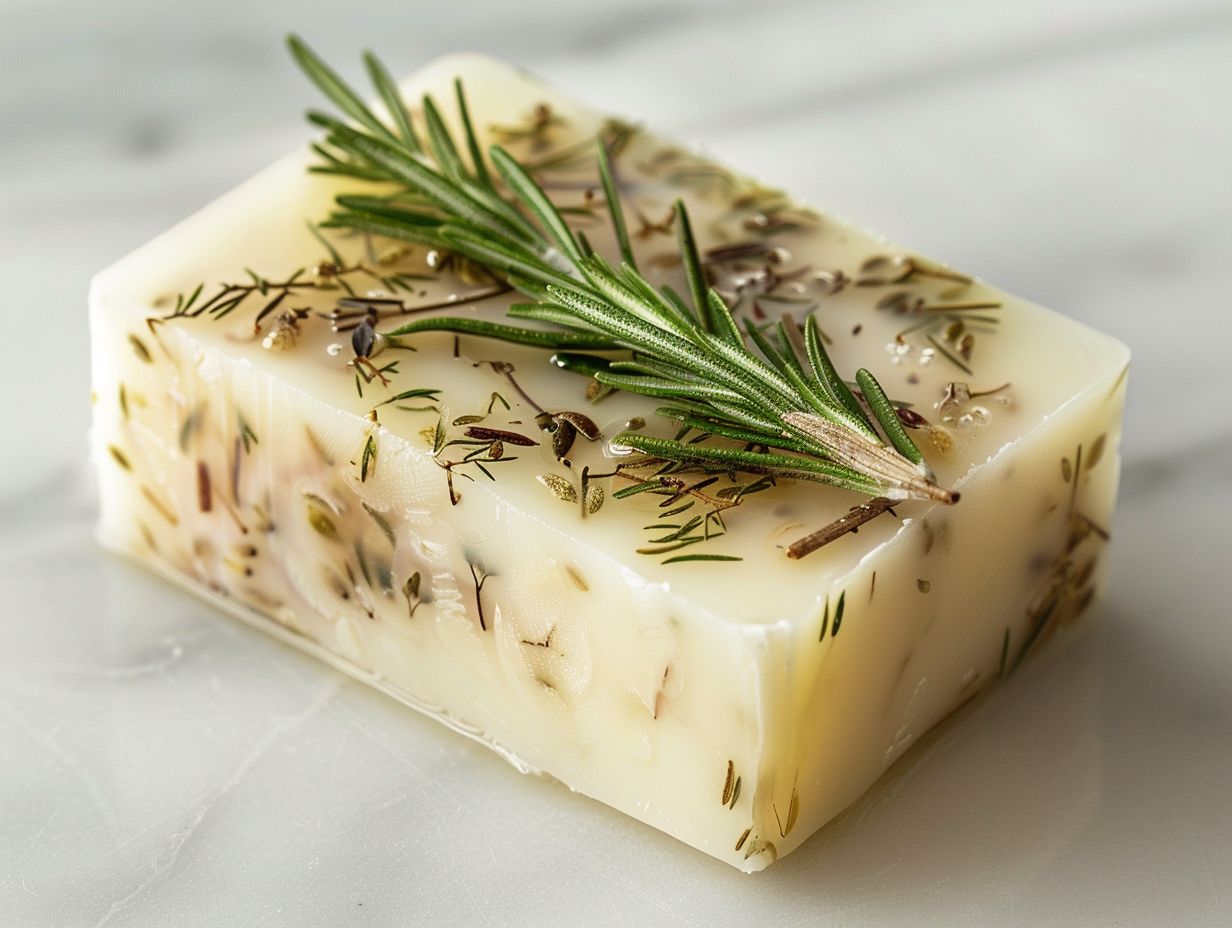
Rose geranium essential oil, a key floral oil used in soap making, offers a delicate and floral fragrance that promotes relaxation and skin rejuvenation, making it a popular choice for beauty soaps.
Its enchanting aroma has a calming effect on the mind, perfect for unwinding after a long day. Besides its aromatic qualities, rose geranium oil boasts impressive skincare benefits, aiding in reducing inflammation and balancing oily or combination skin types.
In soap making, this versatile oil not only adds a luxurious scent but also contributes to the overall health of the skin; its antibacterial properties can help cleanse and purify the skin, leaving it feeling refreshed and revitalized.
Herbal Oils
Herbal oils like tea tree and nutmeg, commonly included in soap making recipes, provide natural antibacterial properties and earthy scents that contribute to cleansing and purifying the skin.
Tea tree oil, derived from the Melaleuca alternifolia plant, is renowned for its potent antibacterial and antifungal properties. When incorporated into soap, it helps combat acne, eczema, and other skin conditions due to its cleansing action. The invigorating aroma of tea tree oil also provides a refreshing sensation during showers.
Nutmeg, on the other hand, offers a warm and spicy scent that adds a comforting element to soap. Its antimicrobial properties promote healthy skin by warding off harmful bacteria and impurities. Nutmeg-infused soap can soothe skin irritations and leave a lingering sense of relaxation after each use.
Woody Oils
Sandalwood essential oil, a prominent woody oil used in soap making, imparts a warm and grounding aroma that enhances relaxation and skin hydration, making it a sought-after choice for luxurious soap blends.
Not only does sandalwood essential oil create a tranquil atmosphere during your shower time, but it also offers a range of skincare benefits. This oil is known for its anti-inflammatory properties, which can help soothe irritation and redness, making it suitable for sensitive skin. Sandalwood is a natural emollient that can lock in moisture, leaving your skin feeling soft and nourished. The earthy fragrance of sandalwood can also uplift your mood and reduce stress, creating a spa-like experience with every use.
Spicy Oils
Cinnamon essential oil, a popular spicy oil in soap making, offers a warm and invigorating fragrance that stimulates the senses and adds a spicy twist to soap formulations for a unique bathing experience.
Its rich aroma has the power to create a cozy atmosphere, perfect for unwinding after a long day. When incorporated into soap, cinnamon oil not only provides a delightful scent but also holds therapeutic properties that can promote relaxation and rejuvenation.
The spicy nature of this essential oil can uplift one’s mood and energize the mind, making it an excellent choice for those seeking a revitalizing shower or bath.
Are Essential Oils Safe to Use in Soap?
While essential oils are generally safe for use in soap making, it is crucial to follow proper dilution guidelines and consider individual allergies and sensitivities. Regulations by organizations like IFRA, EU, and US provide valuable safety standards for using essential oils in cosmetic products.
When diluting essential oils for soap making, it is recommended to use carrier oils like jojoba, coconut, or almond oil to minimize skin irritation. Proper dilution ratios such as 1-3% essential oil to carrier oil are commonly advised to avoid skin sensitization.
Allergic reactions to essential oils can vary among individuals, so it’s important to perform patch tests before incorporating them into soap recipes. Identifying allergies can prevent adverse skin reactions and ensure safe usage.
Organizations like IFRA, EU, and US set regulations on allowed
- essential oil concentrations
- restricted substances
- labeling requirements
to promote safety and compliance in the soap making industry.
Dilution and Proper Usage
Essential oils like lavender, geranium, and clary sage require proper dilution before incorporation into soap recipes to ensure safe usage and prevent skin irritation or sensitivities.
Proper dilution of essential oils in soap making is crucial due to their highly concentrated nature. These oils are potent and can cause adverse reactions if not diluted appropriately. By adhering to dilution guidelines set by regulatory bodies in the industry, soap makers can ensure that their products are safe for consumers and comply with safety standards.
The use of lavender, geranium, and clary sage in their diluted form not only enhances the fragrance and therapeutic benefits of the soap but also minimizes the risk of skin sensitivities or allergies. It is recommended to follow recommended dilution ratios and techniques to enjoy the benefits of these essential oils without any potential harm.”
Allergies and Sensitivities
Individuals with known allergies or sensitivities to peppermint or roman chamomile should exercise caution when using soaps containing these essential oils to avoid adverse skin reactions.
These essential oils are commonly used in soap making due to their pleasing scents and potential therapeutic benefits. For individuals prone to allergic reactions, exposure to these oils can lead to various skin issues such as irritation, redness, or even more severe symptoms.
Awareness and sensitivity testing are crucial steps to prevent any potential allergic responses. Before fully incorporating these oils into soap recipes, individuals should test a small amount on a small patch of skin and observe for any adverse reactions or consider essential oils for candles as an alternative.
It is also important to be mindful of the concentration levels used in soap formulations, as higher concentrations of these essential oils can increase the risk of triggering allergic reactions.
How to Incorporate Essential Oils in Soap Making?
Essential oils can be incorporated into soap making through various methods such as the cold process, hot process, and melt and pour techniques. Each method offers distinct advantages in preserving the fragrance and properties of the oils during soap production.
When using the cold process method, essential oils are added to the soap mixture once it reaches trace, allowing for the retention of the oils’ beneficial properties due to the low temperatures involved.
In contrast, the hot process technique involves incorporating essential oils in lotion after the soap has been fully saponified and cooked. This method is ideal for preserving the aromatic notes of the oils while accelerating the saponification process.
For those opting for the melt and pour method, essential oils are introduced to the soap base during the melting phase. This method is convenient for beginners as it offers ease of use and quick results in creating beautifully scented soaps.
Cold Process Method
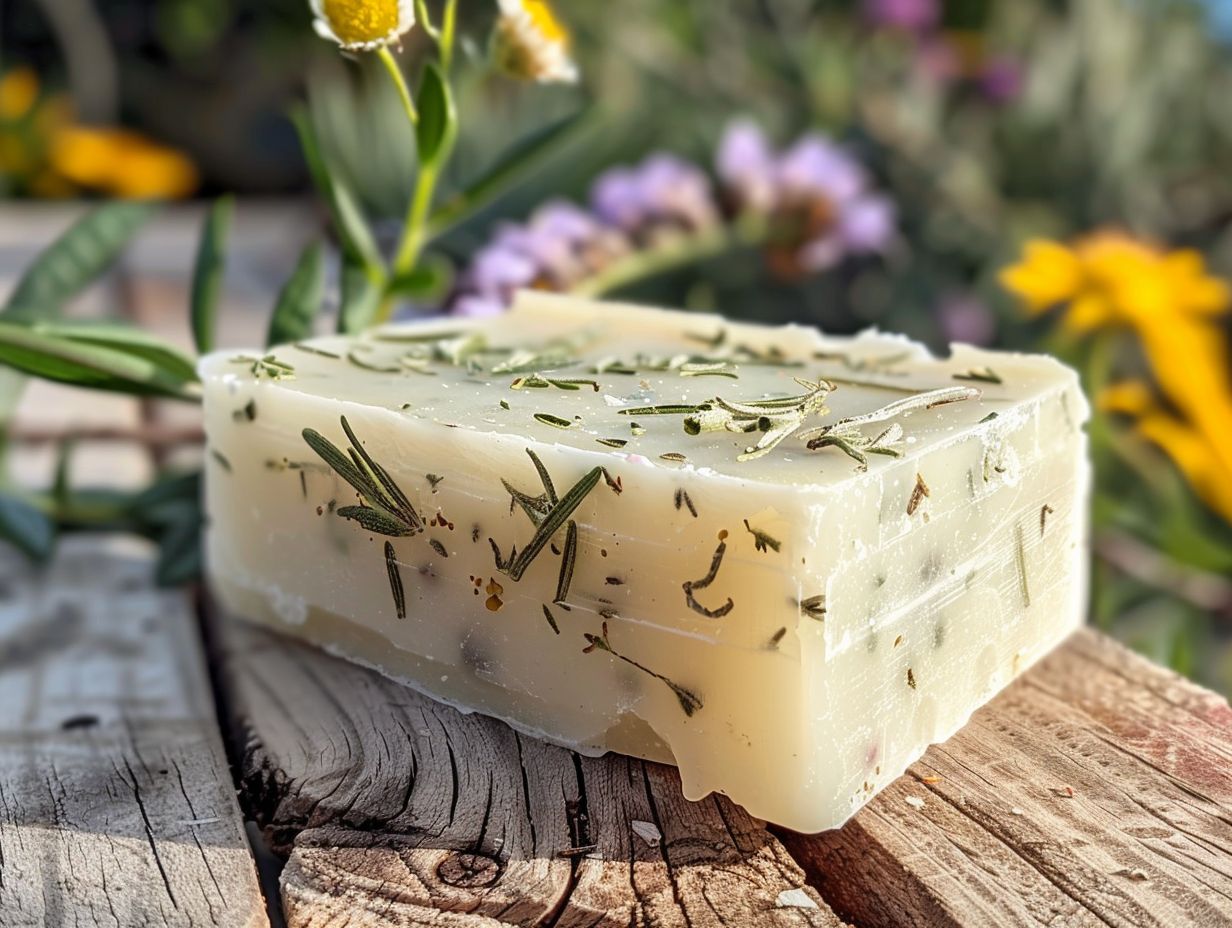
When incorporating lavender and tea tree essential oils into your homemade soap using the cold process method, it is essential to follow a meticulous step-by-step procedure to ensure optimal results. Prepare your soap base by combining lye with water and allowing it to cool. Next, carefully blend in the essential oils once the base reaches the correct temperature, ensuring even distribution.
By using the cold process method, you can maintain the integrity of these potent oils, allowing them to deliver their full range of benefits, from relaxation and stress relief to skin-nourishing properties.
Hot Process Method
The hot process method of soap making, ideal for oils like peppermint and eucalyptus, involves accelerated saponification that can help enhance the aroma and benefits of these essential oils in the final soap product.
When using the hot process technique, essential oils are added towards the end of the soap-making process, preserving their volatile properties more effectively. The controlled heat of this method ensures that the fragrance of peppermint and eucalyptus oils is retained at a higher intensity. Due to the less volatile nature of these oils, incorporating them in the hot process allows for a longer-lasting scent in the soap. This intensification of fragrance is a significant advantage of using the hot process approach in soap making.
Melt and Pour Method
The melt and pour method, suitable for oils like lemon and cinnamon, offers a quick and simple way to add essential oils to soap bases, allowing for creative customization of scents and colors in soap crafting.
With this method, soap makers can effortlessly infuse their creations with the refreshing, citrusy aroma of lemon or the warm, spicy notes of cinnamon, helping to elevate the sensory experience of using the soap. The versatility of incorporating these essential oils opens up a world of possibilities, allowing you to tailor the scents to suit different preferences and occasions.
Using the melt and pour technique grants you the flexibility to experiment with various artistic techniques such as layering, embedding, and swirling, enabling you to create stunning, one-of-a-kind soap designs that are not only visually appealing but also exude delightful fragrances.
What Are the Best Essential Oils to Use in Soap Making?
Choosing the best essential oils for soap making often includes popular options like lavender for relaxation, tea tree for antibacterial properties, peppermint for freshness, eucalyptus for respiratory benefits, and lemon for cleansing and invigoration.
Each of these essential oils brings a unique touch to your soap creations.
- Lavender: Lavender not only imparts a calming fragrance but also possesses soothing properties, making it ideal for promoting relaxation.
- Tea tree: Tea tree oil is renowned for its antibacterial and antifungal qualities, which can help in maintaining skin health.
- Peppermint: Peppermint adds a refreshing scent that invigorates the senses and provides a cooling effect, perfect for awakening the skin.
- Eucalyptus: Eucalyptus oil is highly valued for its respiratory benefits, as it can help clear congestion and promote easier breathing.
- Lemon: The zesty aroma of lemon not only uplifts the mood but also serves as a natural cleanser, helping to purify and revitalize the skin.
Lavender
Lavender essential oil is a versatile option in soap making known for its calming aroma and skin-soothing properties, making it a popular choice for relaxation and skincare products.
Its soothing scent not only helps in reducing stress and anxiety but also promotes a sense of well-being and relaxation.
Along with its calming effects, lavender essential oil is renowned for its skincare benefits, including its ability to soothe irritated skin, reduce redness, and promote a clear complexion.
When incorporated into soap-making, lavender essential oil adds a natural fragrance that lingers on the skin, providing a gentle and floral aroma. Its antimicrobial properties can also help cleanse the skin while its anti-inflammatory properties can aid in soothing skin conditions.
Tea Tree
Tea tree essential oil is renowned for its potent antibacterial and antifungal properties, making it an excellent choice for cleansing soaps and skincare products that target acne and skin infections.
When incorporated into soap making, the tea tree essential oil not only helps in deep-cleansing the skin but also assists in reducing inflammation and soothing irritations. Due to its antimicrobial nature, this oil can effectively combat various skin conditions, such as eczema and psoriasis. In addition, its natural astringent properties make it beneficial for regulating oil production, leading to a balanced complexion. Moreover, tea tree oil can aid in promoting overall skin health by protecting against harmful microbes and promoting skin regeneration.
Peppermint
Peppermint essential oil provides a refreshing and cooling sensation in soap making, ideal for invigorating shower experiences and promoting mental clarity and alertness.
Its unique aroma is known to boost energy levels and uplift mood, making it a popular choice for those seeking a revitalizing bath routine. When infused into soap formulas, this powerful essential oil also offers antiseptic properties, helping cleanse and purify the skin with its cooling effect.
Eucalyptus
Eucalyptus essential oil, known for its respiratory benefits and fresh scent, is commonly used in soap making to promote a sense of clarity, relaxation, and deep breathing during showers.
When incorporated into soap, eucalyptus essential oil not only provides a rejuvenating aroma but also clears the sinuses and promotes easy breathing, making it a popular choice for those seeking a refreshing and invigorating shower experience. Its cleansing properties help in removing impurities from the skin while leaving a soothing sensation, perfect for unwinding after a long day. The unique combination of respiratory advantages and aromatic qualities makes eucalyptus essential oil a versatile ingredient that adds both physical and mental benefits to your daily cleansing routine.
Lemon
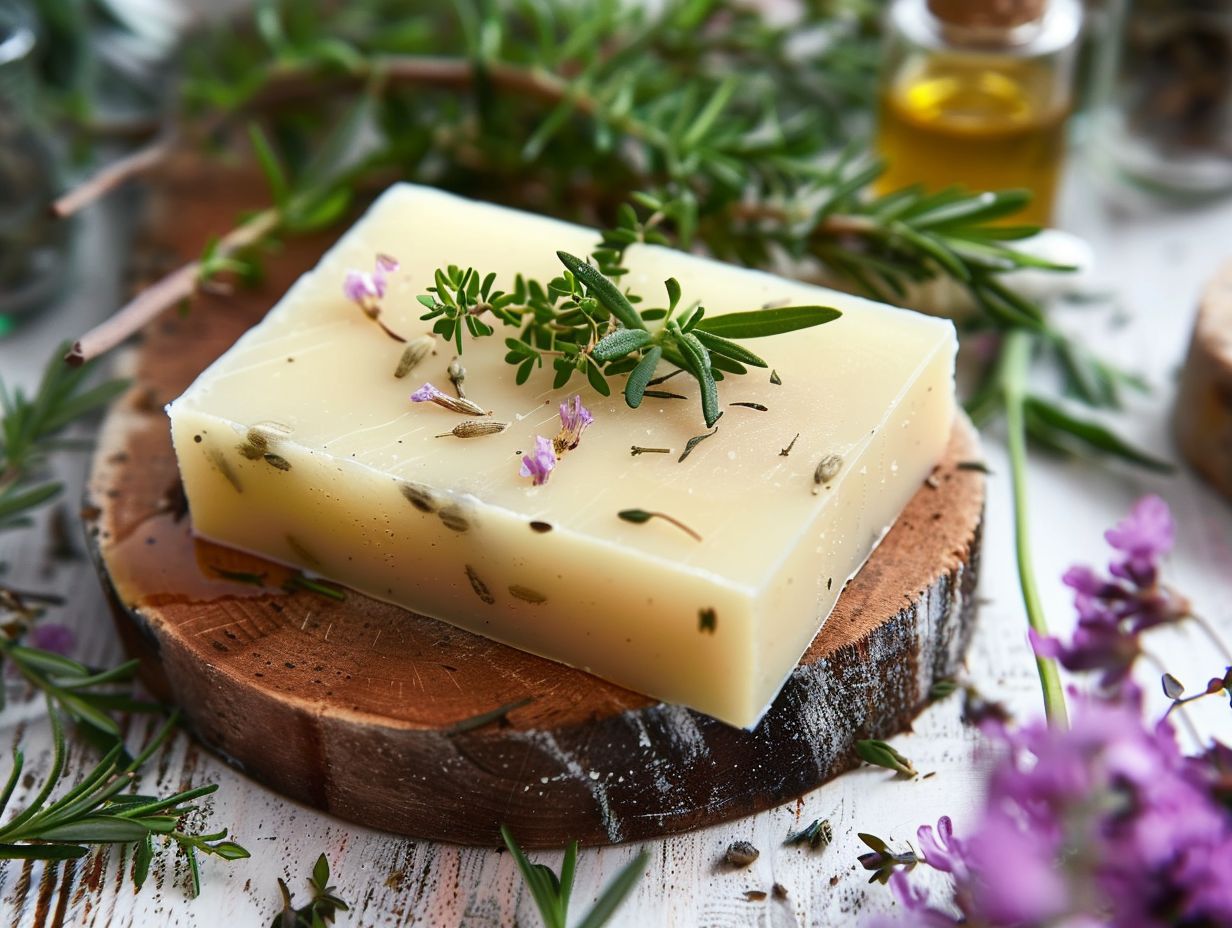
Lemon essential oil offers a zesty and uplifting aroma in soap making, perfect for brightening moods, cleansing the skin, and adding a burst of freshness to bathing routines.
Enriched with citrus notes, lemon essential oil is renowned for its ability to awaken the senses and promote mental clarity. When incorporated into soap, its invigorating scent can turn a mundane shower into a revitalizing experience. Not only does it serve as a natural mood booster, but lemon essential oil also possesses cleansing properties that help to purify the skin, leaving it feeling refreshed and rejuvenated.
Frequently Asked Questions
Can You Use Essential Oils in Soap?
Yes, essential oils can be used in soap making as they offer many benefits such as natural fragrance, therapeutic properties, and antimicrobial effects.
What are the Benefits of Using Essential Oils in Soap?
Essential oils in soap can provide a variety of benefits including calming effects, moisturizing properties, and natural scent without harsh chemicals.
Which Essential Oils are Safe to Use in Soap?
It is recommended to use pure and high-quality essential oils in soap making. Some safe options include lavender, peppermint, tea tree, and chamomile.
How Much Essential Oil Should I Use in Soap Making?
The amount of essential oil to use in soap making will depend on the type of oil, desired strength of scent, and the size of the batch. Generally, 1-2% of the total soap weight is recommended.
Can I Use Essential Oils in Melt and Pour Soap?
Yes, you can use essential oils in melt and pour soap as long as they are skin-safe and used in the proper amount. Be sure to check the manufacturer’s guidelines for recommended usage rates.
What Precautions Should I Take When Using Essential Oils in Soap?
Some essential oils may cause skin irritation or sensitivity, so it is important to do a patch test and dilute them properly before use. It is also recommended to research each oil’s specific safety precautions and follow them accordingly.

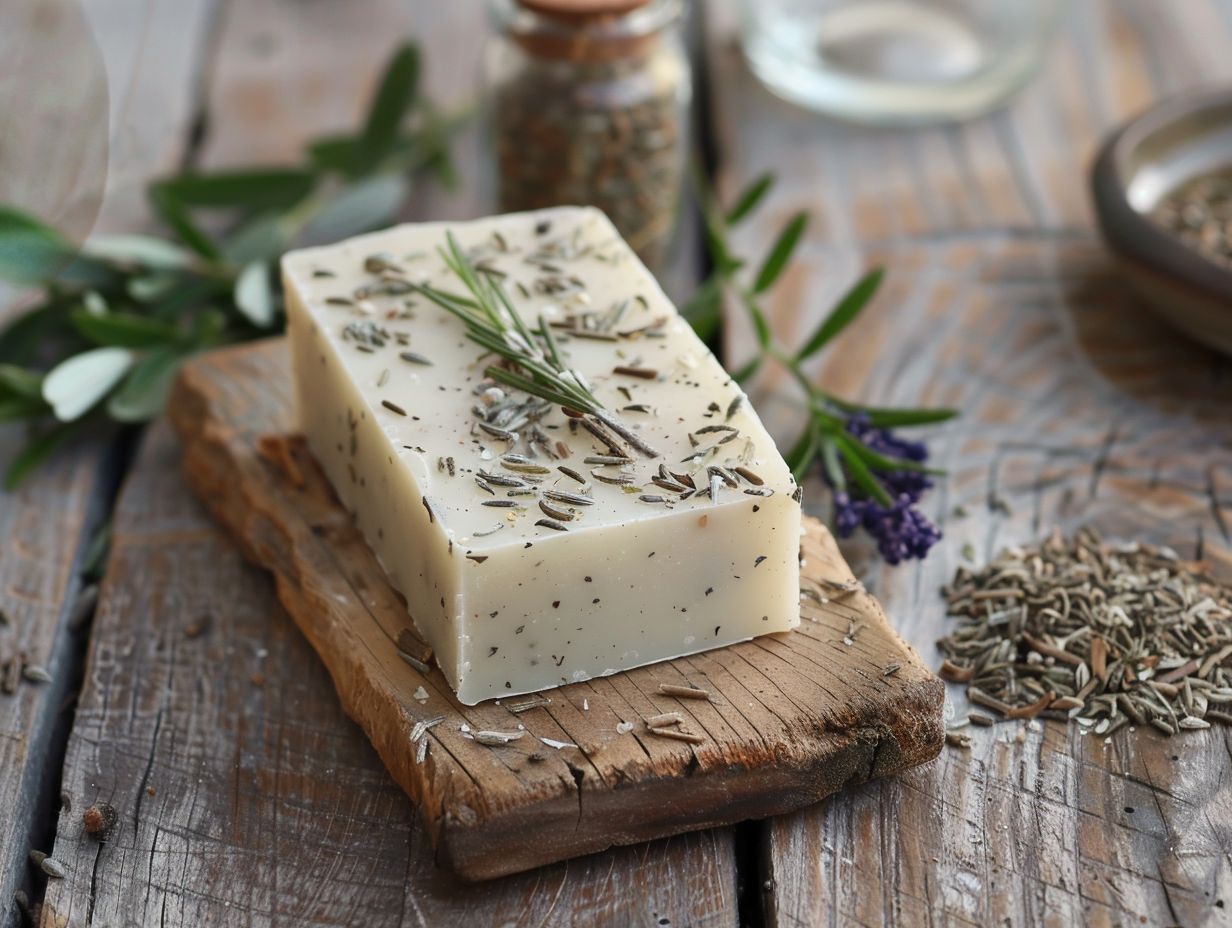
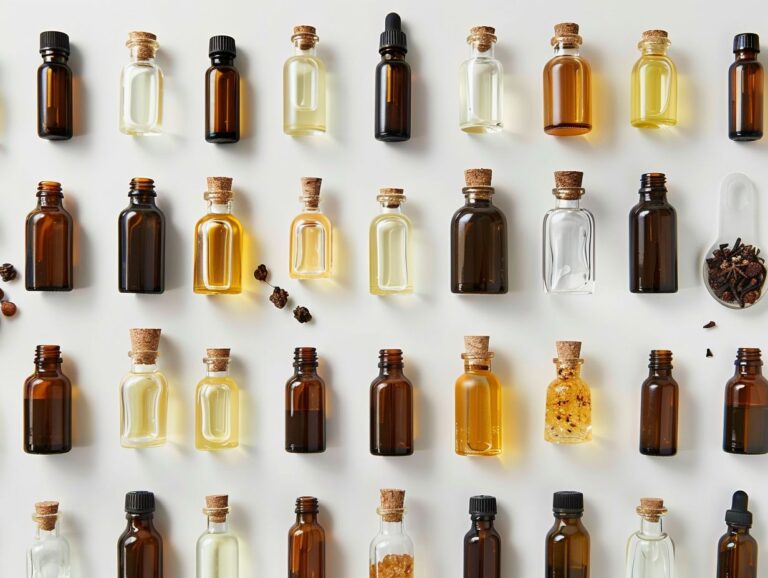

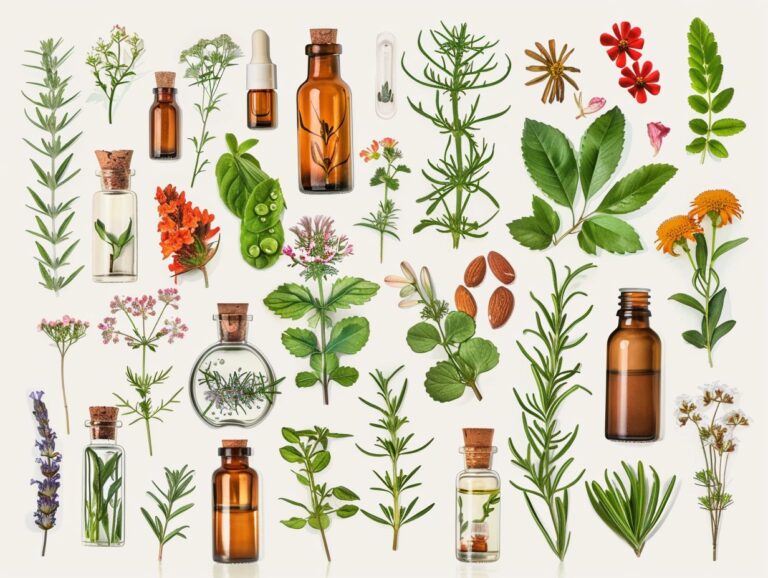

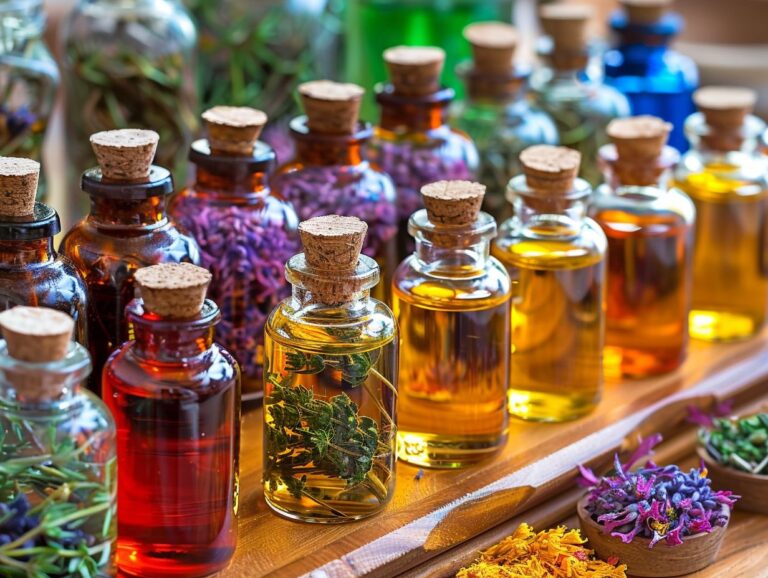

4 Comments